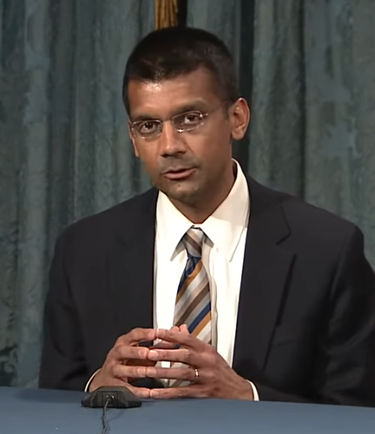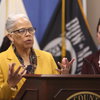New York State has five Omicron cases
New York State has its first confirmed cases of the COVID-19 Omicron variant — five cases, all downstate — Governor Kathy Hochul and New York City Mayor Bill de Blasio announced in a joint press conference Thursday night.
The cases appear unrelated.
“We are working together to protect you,” said De Blasio, urging, “Let’s get vaccinated.” He also said that the currently dominant Delta variant is still the greatest challenge.
Dave A. Chokshi, the city’s health commissioner, said of the Omicron variant, “There is community spread.” The cases, he said, are not just from people traveling to Africa, where the Omicron variant was first reported, or to other locations where it has been identified.
The five cases are all from late November, he said, explaining it takes several days to complete the sequencing process that identifies the variant.
Some of the Omicron cases were confirmed just before the press conference so many specific details are as yet unknown.
One case is of a 67-year-old woman who lives in Suffolk County and traveled to South Africa but was asymptomatic until returning home. Sequencing performed at the Pandemic Response Lab confirmed the presence of the Omicron variant. Her symptoms were mild: a headache and a cough.
The other four cases are of New York City residents. Two cases from Queens and one from Brooklyn were confirmed at the Pandemic Response Lab, while the other case, whose borough of residence is still being determined, was confirmed by the New York City Public Health Lab.
The first Omicron case in the United States was reported in California on Wednesday, the second case was reported Thursday in Minnesota with exposure at an event in New York City. Both of those cases were mild, as is the Suffolk County case. By Friday, a total of 10 cases were reported in six states.
Also on Friday, scientists with the South African COVID-19 Modelling Consortium posted a report, which is not yet peer reviewed or published in a scientific journal, saying that Omicron is spreading at more than twice the speed of the Delta variant in South Africa.
The rapid spread, The New York Times reports, is because of Omicron’s contagiousness and because of the variant’s ability to dodge the body’s immune system, the researchers said; Omicron was first identified on Nov. 23 in South Africa and now accounts for about three-quarters of new cases there.
Chokshi said at New York City's Thursday night press briefing that the single most important intervention is vaccination. The woman from Suffolk County, on Long Island, was vaccinated against COVID-19, Hochul said, but the vaccination status of the other four New Yorkers infected with the variant is not yet known.
Chokshi also said masking and testing are important; he urged hand-washing and said that people who are not feeling well should stay home.
Ted Long, executive director of New York City’s Test & Trace Corps, said New York City has built a testing structure that conducts 100,000 tests in a given day. All cases will be traced “to break chains,” preventing spread of the virus, he said.
Asked if, as in 2020, mask mandates should be issued or crowd limits declared, Hochul said, “We’ve learned an enormous amount over the last 20 months.” She called vaccination a “game-changer” and said the current variant “does not have to be a crisis that leads to shutdown.”
Hochul also noted that New York City is different from the rest of the state “because of density” and so rules there make more sense.
“I can change the dynamic … instantly,” she said.
Albany County
Albany County has 214 new cases of COVID-19, Daniel McCoy, the county’s executive, announced on Friday morning in his daily COVID release.
The county’s five-day average of new daily positive cases is now up to 171.4. There are now 675 active cases in the county, up from 627 on Thursday.
“This is now the third consecutive day I’m reporting more than 200 new cases of COVID identified in Albany County within a 24-hour period,” said McCoy in his release. “With 238 new infections, this is now the largest single day increase since January 23. And while our hospitalizations are beginning to trend down for now, it’s important to remember that there is typically an estimated two-week delay before we see hospitalizations spike after the latest surge of infections.”
There were five new hospitalizations since Thursday, and there are now a total of 44 county residents hospitalized with the coronavirus — a net decrease of nine. Ten of those hospital patients are now in intensive-care units, up from six on Thursday.
Albany County’s COVID-19 death toll remains at 449.
“Our current infection rate along with reports that the Omicron variant has now been identified in New York are reminders of how important it is to get the COVID vaccine,” said McCoy. “And because the data shows that the vaccine’s effectiveness wanes over time, public health experts are encouraging all adults to get the booster shot.”
Adults who initially were vaccinated with Moderna or Pfizer-BioNtech are eligible for a booster shot six months after their second shot; adults who were initially vaccinated with on-shot Johnson & Johnson are eligible for a booster shot after two months.
As of Thursday, 75.7 percent of all Albany County residents have received at least the first dose of the vaccine, and 67.9 percent have been fully vaccinated. The first-dose vaccination rate for county residents 18 and older is 85 percent.



